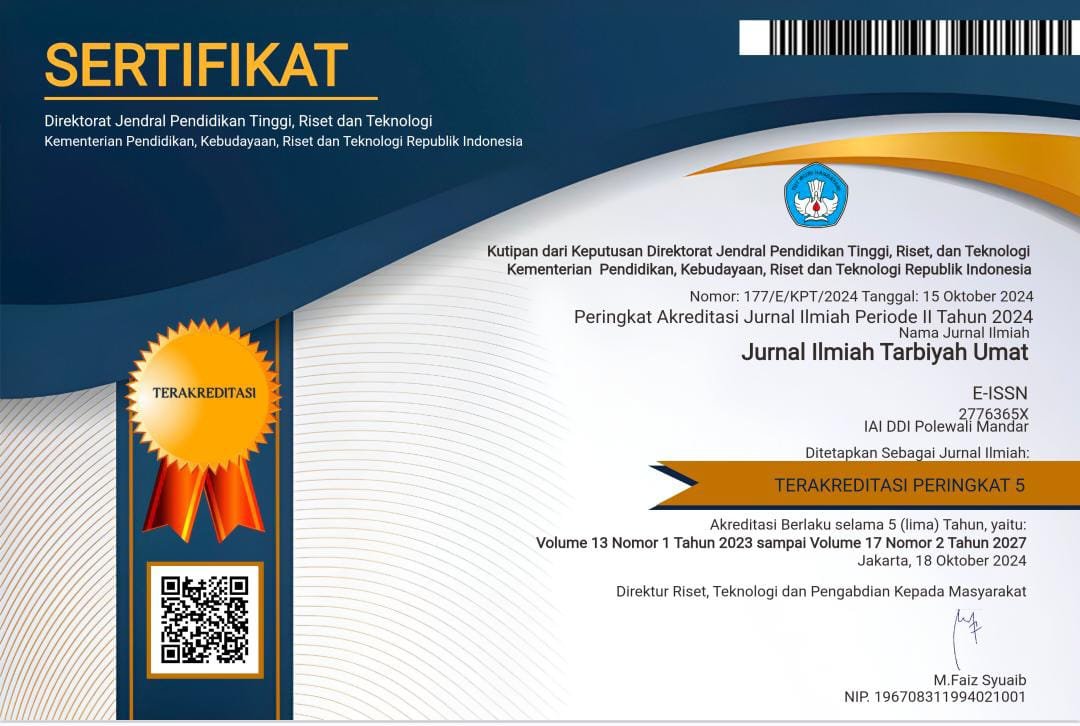THE ROLE OF PRIVATE ISLAMIC SCHOOLS IN EQUALIZING ACCESS TO EDUCATION IN REMOTE AREAS: A CASE STUDY IN GOWA, INDONESIA
DOI:
https://doi.org/10.36915/jitu.v15i1.428Keywords:
Educational Inequality; Private Islamic Schools, Rural Education AccessAbstract
This study explores the role of private Islamic schools in promoting educational equity and supporting the goals of Sustainable Development Goal 4 (SDG 4) in rural Indonesia. Focusing on Madrasah Tsanawiyah Uminda Tanakaraeng in Gowa Regency, South Sulawesi, it examines how local Islamic schools respond to structural barriers such as poverty, inadequate infrastructure, and entrenched socio-cultural norms that inhibit access to formal education. Findings reveal that families in remote areas often prioritize short-term survival strategies—such as informal labor and early marriage—over long-term educational investment. However, the presence of faith-based institutions like madrasahs has proven instrumental in addressing these challenges by offering both general and religious education tailored to the needs and values of the community. The madrasah not only facilitates access to junior secondary education but also promotes religious literacy, gender empowerment, and community cohesion. Despite resource limitations, the school plays a vital role in reducing education inequality and serves as a model for inclusive, context-sensitive education. The study concludes that integrating private Islamic schools into national education policy through financial and institutional support could significantly enhance the delivery of equitable education in underserved regions and accelerate progress toward achieving SDG 4.
Downloads
Published
How to Cite
Issue
Section
License
Copyright (c) 2025 Samhi Muawan Djamal, Rosmalina Kemala, Mujizatullah

This work is licensed under a Creative Commons Attribution-NonCommercial-ShareAlike 4.0 International License.







